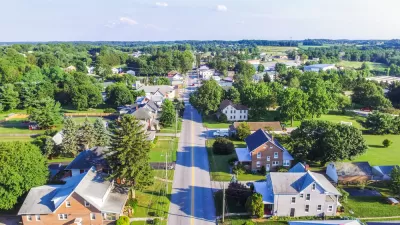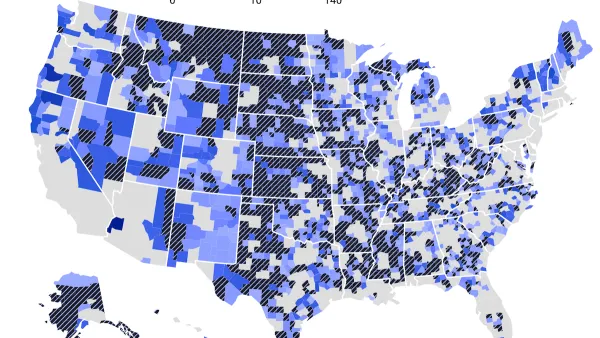Allowing federal employees to work from home can deepen government agencies’ understanding of communities’ needs and create economic opportunities for local residents.

In a commentary in the Daily Yonder, Christopher Chavis argues that remote work, contrary to the beliefs of some political leaders, makes for a stronger, more knowledgeable, and more skillful federal workforce and benefits rural communities.
In Chavis’ view, remote work decentralizes power and empowers rural communities by opening up federal roles to more people. “Remote work made it possible for individuals in rural areas to take on roles previously limited to urban centers, thus giving them greater influence within the federal bureaucracy.”
Remote work and technology have, says Chavis, also boosted collaboration. “A person in Claremont, New Hampshire, can work in real-time with someone in Claremont, California. This means that people from both urban and rural communities can collaborate seamlessly, bringing diverse perspectives to the table.”
These benefits come in addition to more tangible effects such as higher incomes and access to job opportunities for young people who want to stay in their rural communities.
Most importantly, Chavis writes that remote work allows federal workers to remain in touch with their communities and ensure fairness when it comes to grant reviews and other bureaucratic processes.
FULL STORY: Commentary: Remote Work Empowers Rural Workforce and Strengthens Federal Government

Maui's Vacation Rental Debate Turns Ugly
Verbal attacks, misinformation campaigns and fistfights plague a high-stakes debate to convert thousands of vacation rentals into long-term housing.

Planetizen Federal Action Tracker
A weekly monitor of how Trump’s orders and actions are impacting planners and planning in America.

San Francisco Suspends Traffic Calming Amidst Record Deaths
Citing “a challenging fiscal landscape,” the city will cease the program on the heels of 42 traffic deaths, including 24 pedestrians.

Adaptive Reuse Will Create Housing in a Suburban Texas Strip Mall
A developer is reimagining a strip mall property as a mixed-use complex with housing and retail.

Study: Anti-Homelessness Laws Don’t Work
Research shows that punitive measures that criminalized unhoused people don’t help reduce homelessness.

In U.S., Urban Gondolas Face Uphill Battle
Cities in Latin America and Europe have embraced aerial transitways — AKA gondolas — as sustainable, convenient urban transport, especially in tricky geographies. American cities have yet to catch up.
Urban Design for Planners 1: Software Tools
This six-course series explores essential urban design concepts using open source software and equips planners with the tools they need to participate fully in the urban design process.
Planning for Universal Design
Learn the tools for implementing Universal Design in planning regulations.
Heyer Gruel & Associates PA
JM Goldson LLC
Custer County Colorado
City of Camden Redevelopment Agency
City of Astoria
Transportation Research & Education Center (TREC) at Portland State University
Jefferson Parish Government
Camden Redevelopment Agency
City of Claremont





























